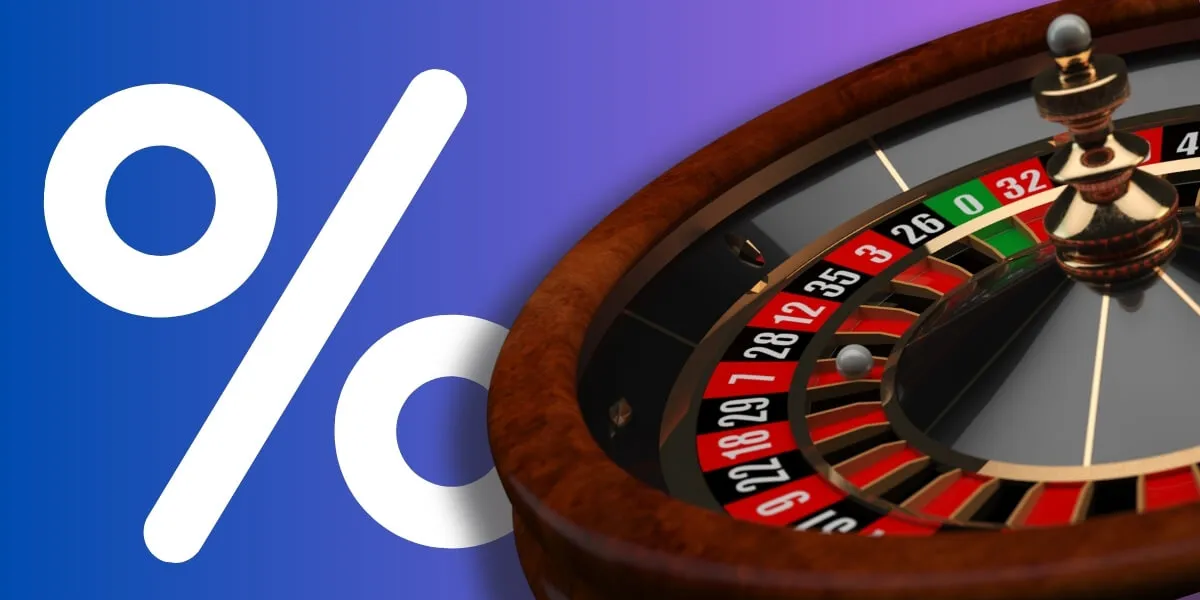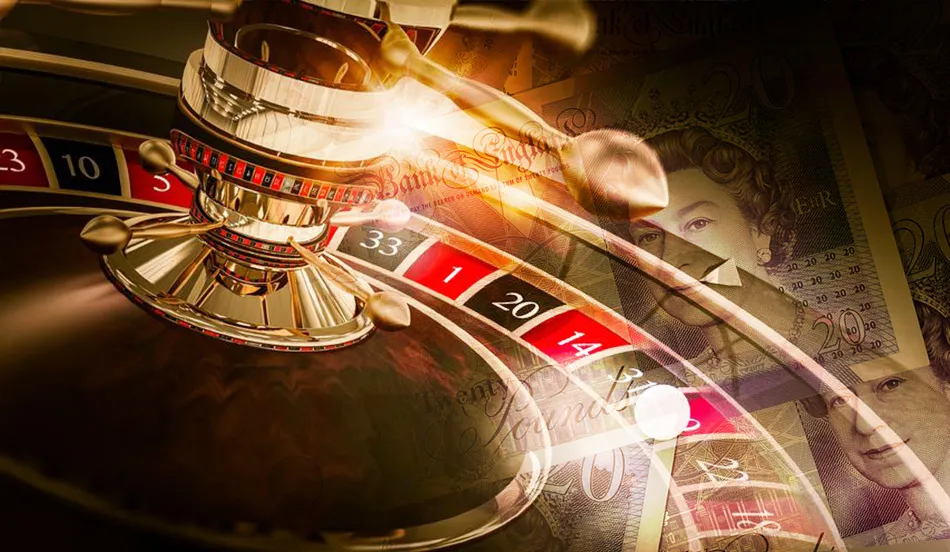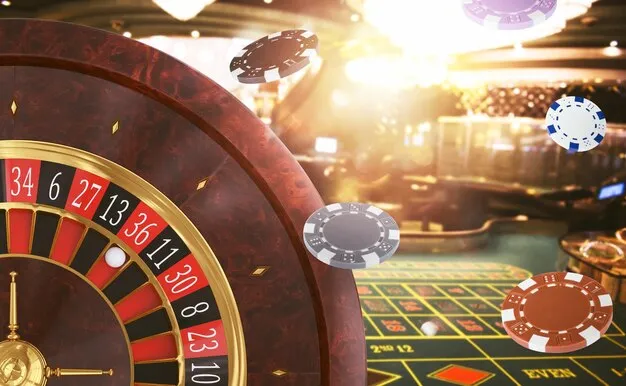
Introduction Understanding the Casino House Edge and How to Reduce It
When it comes to gambling, many players are drawn in by the thrill of potentially winning big. However, there is one factor that often goes unnoticed but has a significant impact on a player’s ability to win – the casino house edge. In simple terms, the house edge is the mathematical advantage that casinos have over players in any given game. This means that in the long run, the casino will always come out on top.
For those who are new to the world of gambling, understanding the concept of the house edge can be confusing. But fear not, in this article we will break down everything you need to know about the casino house edge, how it works, and most importantly, how you can reduce it to improve your chances of winning.
What is the Casino House Edge?
Before delving into how to reduce the house edge, it’s crucial to first understand what it is and why it matters. In simple terms, the house edge is the advantage that casinos have over players in any given game. It is expressed as a percentage and represents the average amount of money that a player will lose over time while playing a particular game.
For example, if a game has a house edge of 2%, this means that for every $100 wagered, the casino will make an average profit of $2, while the player will lose $2 on average. This may not seem like much, but when you factor in the millions of dollars that are wagered daily in a casino, it adds up to significant profits for the house.
The concept of the house edge can be seen in every casino game, whether it’s blackjack, roulette, or slots. This means that no matter how skilled a player may be, they are always at a disadvantage when playing against the house.
How is the House Edge Calculated?
The house edge is calculated using a mathematical formula that takes into consideration various factors, such as the rules of the game, the number of decks used, and the odds of winning. For example, in blackjack, the house edge can vary depending on the specific rules of the game, such as whether the dealer hits or stands on a soft 17 or if players are allowed to surrender.
In general, the formula for calculating the house edge is as follows:
House Edge = (Total Amount Wagered * House Percentage) / Total Amount Wagered
This equation shows that the house edge is directly proportional to the total amount wagered. This means that the more a player bets, the more money they are likely to lose in the long run. Therefore, it’s essential to have a budget and stick to it when gambling to avoid losing more than intended.
It’s also worth noting that the house edge can vary from game to game and even within the same game, depending on the specific rules and variations being played. For example, in roulette, the house edge is lower for European roulette with a single zero compared to American roulette with a double zero.
Why Does the House Edge Exist?

The existence of the house edge is not just a coincidence; it’s a deliberate creation by casinos to ensure their profitability. In fact, the concept of the house edge dates back centuries, with its origins believed to be in the 17th century when the first casino games were introduced.
The purpose of the house edge is simple – to give casinos an advantage over players. This allows them to operate and make a profit while still offering the chance for players to win. Without the house edge, casinos would not be able to sustain themselves and would eventually go out of business.
In addition to ensuring the casino’s profitability, the house edge also serves as a cushion against short-term fluctuations in players’ wins and losses. It’s important to note that the house edge only applies over the long run, and in the short term, players can experience wins or losses that deviate from the expected average.
Strategies to Reduce the House Edge
Now that we understand what the house edge is and why it exists, let’s explore some strategies that can help reduce it and improve your chances of winning.
- Know the Rules and Variations: As mentioned earlier, the house edge can vary depending on the specific rules and variations of a game. Therefore, it’s crucial to know the rules before playing any game. This will allow you to choose the best version of the game with the lowest house edge. For example, in blackjack, opting for a game with fewer decks and favorable rules can significantly reduce the house edge.
- Understand Probability and Odds: A basic understanding of probability and odds can go a long way in helping you reduce the house edge. Knowing the likelihood of certain outcomes in a game can inform your betting decisions and improve your chances of winning.
- Practice Proper Bankroll Management: It’s essential to have a budget and stick to it when gambling. This will prevent you from overspending and losing more than you can afford. It’s recommended to only bet a small percentage of your bankroll at a time, as this will allow you to play for longer and increase your chances of winning.
- Take Advantage of Bonuses and Promotions: Many online casinos offer bonuses and promotions that can help reduce the house edge. These include welcome bonuses, deposit bonuses, and cashback offers. While these may come with certain terms and conditions, taking advantage of them can give you an edge in reducing the house edge.
- Choose the Right Games: Not all casino games are created equal when it comes to the house edge. Some have a lower house edge than others, making them more favorable for players. For example, blackjack, baccarat, and craps tend to have lower house edges compared to games like keno and slots.
- Learn Strategies for Specific Games: In addition to choosing the right games, learning and implementing strategies for specific games can also help in reducing the house edge. For example, in blackjack, using a basic strategy can lower the house edge by up to 1%, giving players a better chance at winning.
Misconceptions About the House Edge

As with any topic, there are many misconceptions surrounding the casino house edge. Unfortunately, believing in these myths can be detrimental to a player’s chances of winning. Let’s take a look at some common misconceptions about the house edge and debunk them.
- The House Edge is Rigged: One common misconception is that the house edge is rigged in favor of the casino. While it’s true that the house edge gives the casino an advantage, it’s not rigged in the sense that players have no chance of winning. The mathematical formula used to calculate the house edge is based on probability and odds, making it a fair representation of the casino’s advantage.
- Betting More Increases Your Chances of Winning: Many players believe that betting more will increase their chances of winning. However, this is not the case. As mentioned earlier, the house edge is directly proportional to the total amount wagered, so the more you bet, the more money you are likely to lose in the long run. It’s crucial to stick to your budget and resist the temptation to bet more than you can afford.
- Changing Strategies Can Beat the House Edge: Some players think that changing strategies or betting systems can help them beat the house edge. However, this is not true. The house edge is a mathematical constant that cannot be changed by any strategy or betting system. While some strategies may reduce the house edge slightly, they do not eliminate it entirely.
- The House Edge Applies to Every Bet: Another misconception is that the house edge applies to every bet placed. This is not the case, as the house edge only applies over time. In the short term, players can experience wins or losses that deviate from the expected average.
Conclusion
In conclusion, understanding the casino house edge and how to reduce it is crucial for anyone looking to improve their chances of winning at gambling. While the house edge exists for a reason and can’t be eliminated, there are certain strategies and tips that players can use to minimize its impact. These include knowing the rules and variations of games, practicing proper bankroll management, and choosing the right games with lower house edges. By implementing these strategies and being aware of common misconceptions about the house edge, players can make smarter decisions when gambling and potentially increase their chances of winning. Remember, gambling should always be approached with caution and responsibility, and that the house will always have an advantage in the long run.


